

WELLBEING AT HEART
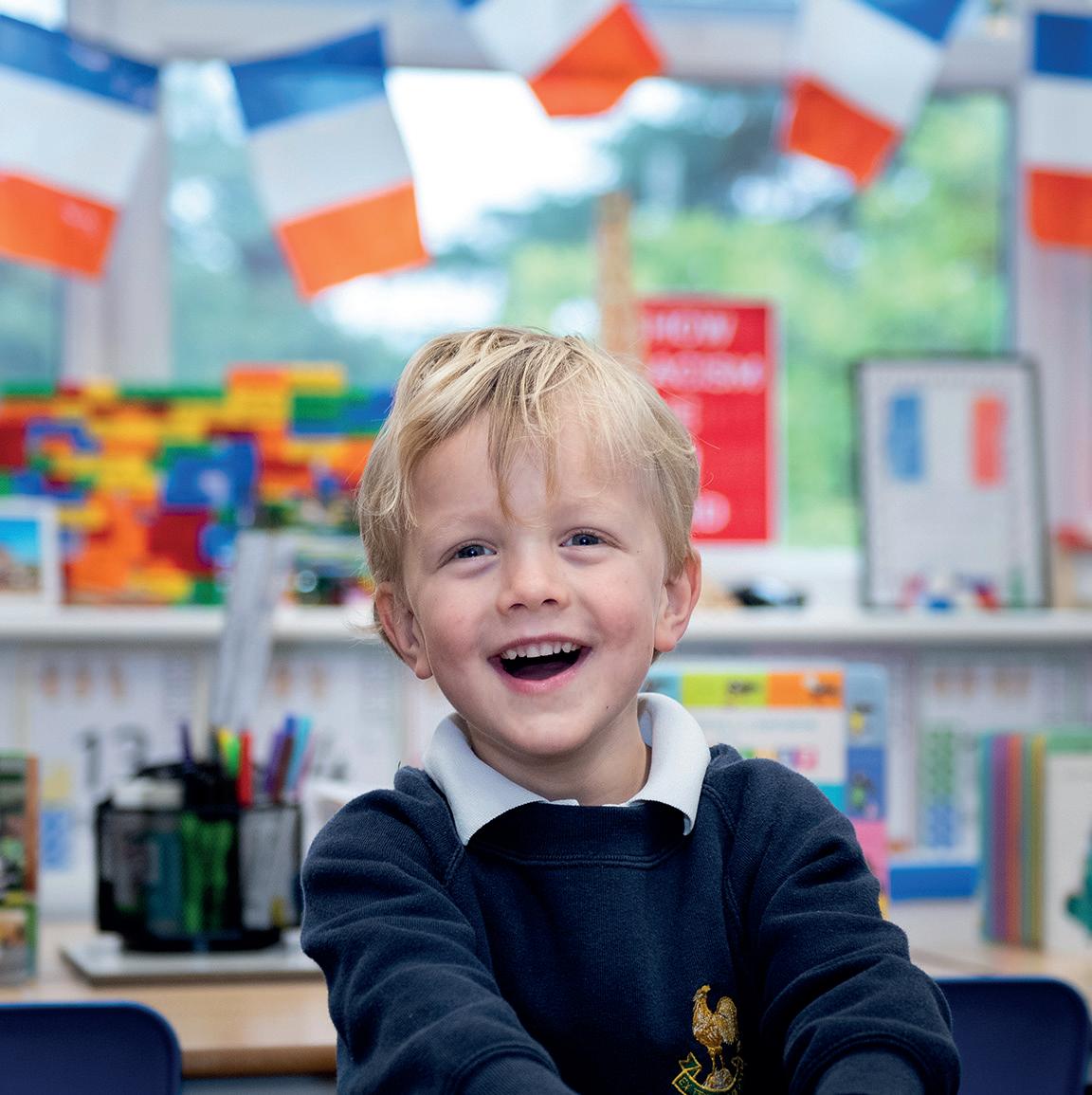
“There is exceptionally strong pastoral care and the children enjoy excellent relationships with their teachers.”
ISI Inspection Report 2023
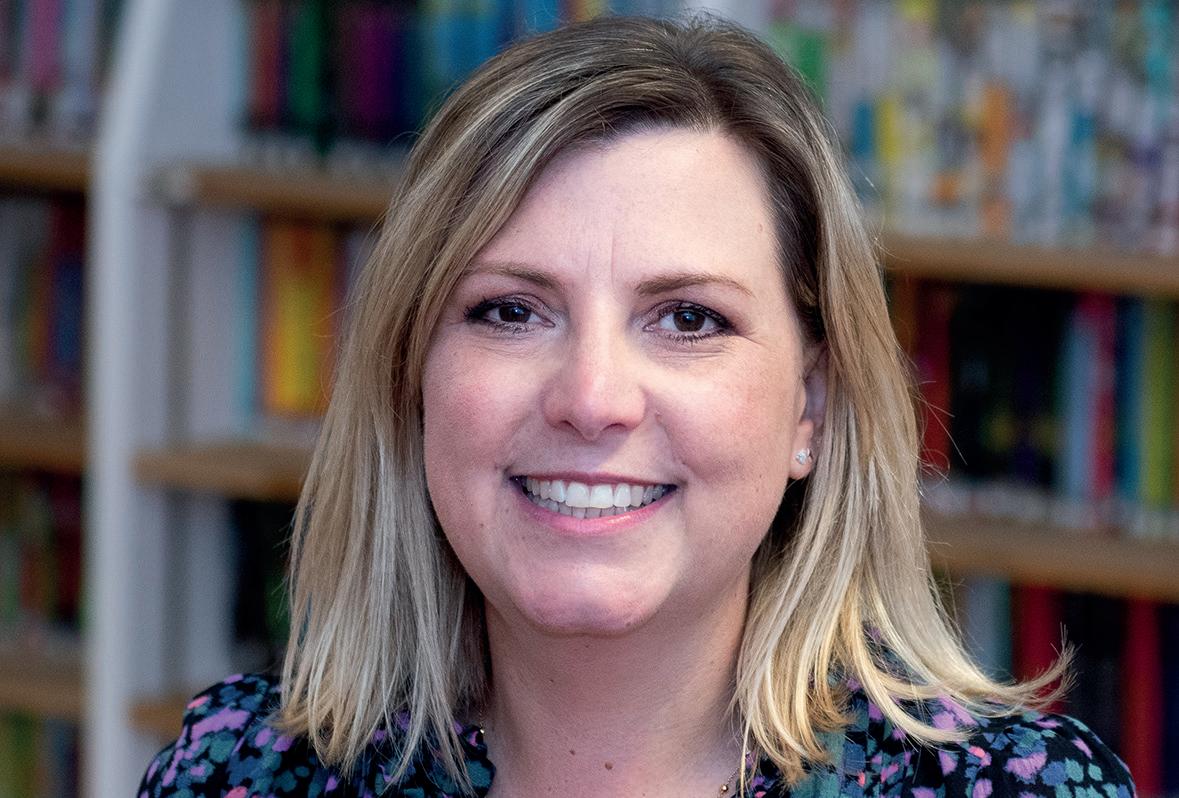
FROM THE HEADTEACHER
We recognise that our children live active and varied lives. Alongside a rich and challenging curriculum, our children benefit from an extensive extracurricular programme that provides experiences and opportunities to shape their thinking and define the adults they will become. As they embrace these opportunities, it is vital that they also develop the resilience and coping skills needed to manage the challenges that inevitably arise as they progress through school and beyond.
That is why wellbeing is at the very heart of everything we do at Chinthurst. Our comprehensive pastoral care system gives our children resilience and confidence, so that they can develop into happy and fulfilled individuals. However, wellbeing is about much more than just happiness, so our programme is designed to help our children understand how their bodies and minds work, and give them the skills to look after themselves through life’s inevitable ups and downs.
We aim to ensure that every child …
• Has a strong and close relationship with staff
• Feels confident to step out of his or her comfort zone
• Knows that mistakes are an important part of learning
• Understands the importance of being kind and caring
• Has time to reflect
• Leads a balanced school life … but most importantly of all, we aim to ensure that our children have the space and time to be happy – because happy children can achieve amazing things!
Cathy Trundle Headteacher
THE ZONES OF REGULATION CURRICULUM
We have a Zones of Regulation curriculum across the whole school, which teaches children how to recognise and understand their emotions and gives them the tools to self-regulate when necessary.
There are four zones which assist children in categorising their emotions, and specially prepared lessons help them to understand emotional triggers, the tools they need to stay calm and how to see things from other people’s perspectives.
The Zones of Regulation are now part of everyday practice at Chinthurst. They are woven into the ethos of the school and displayed in every classroom.
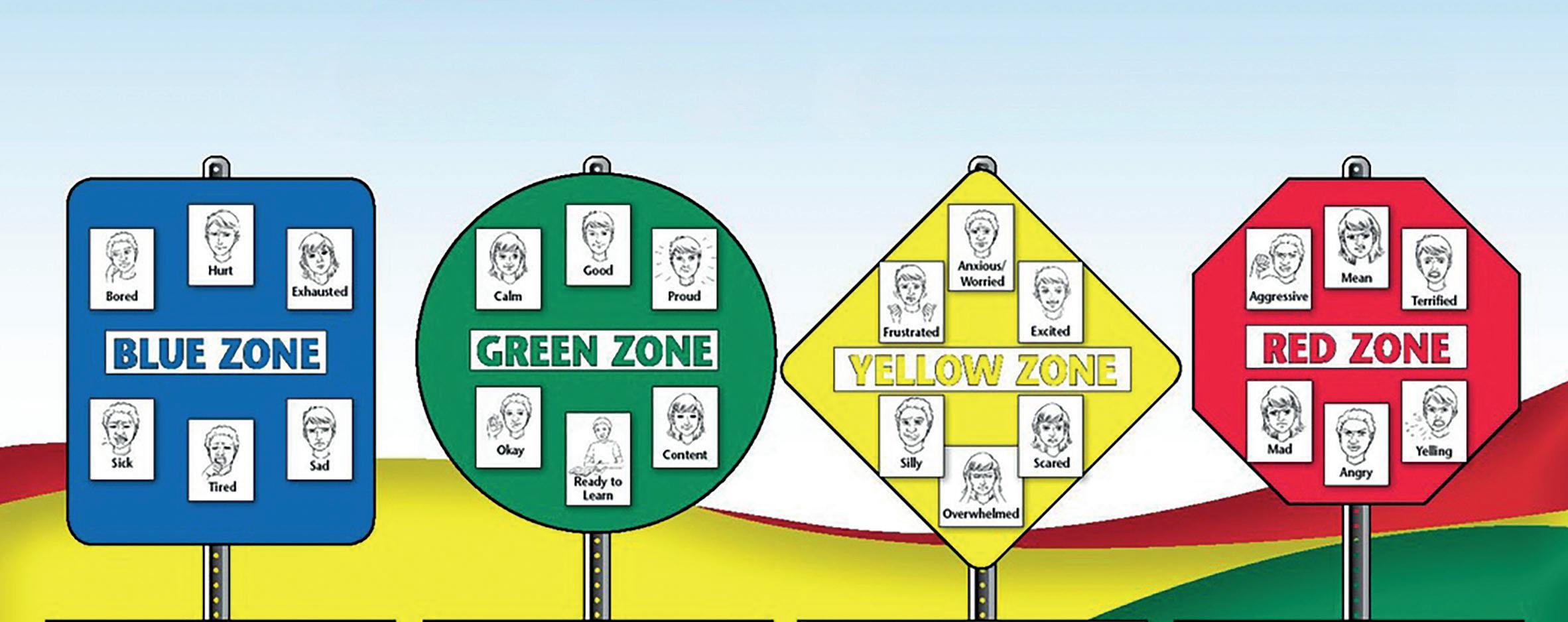
“Children need to be in the right frame of mind to learn effectively. Zones of Regulation helps them to recognise this and builds strategies to regulate their emotions, so that they are appropriate for the situations they are in.”
Mr Shaun Hornsby, Head of Pastoral Care
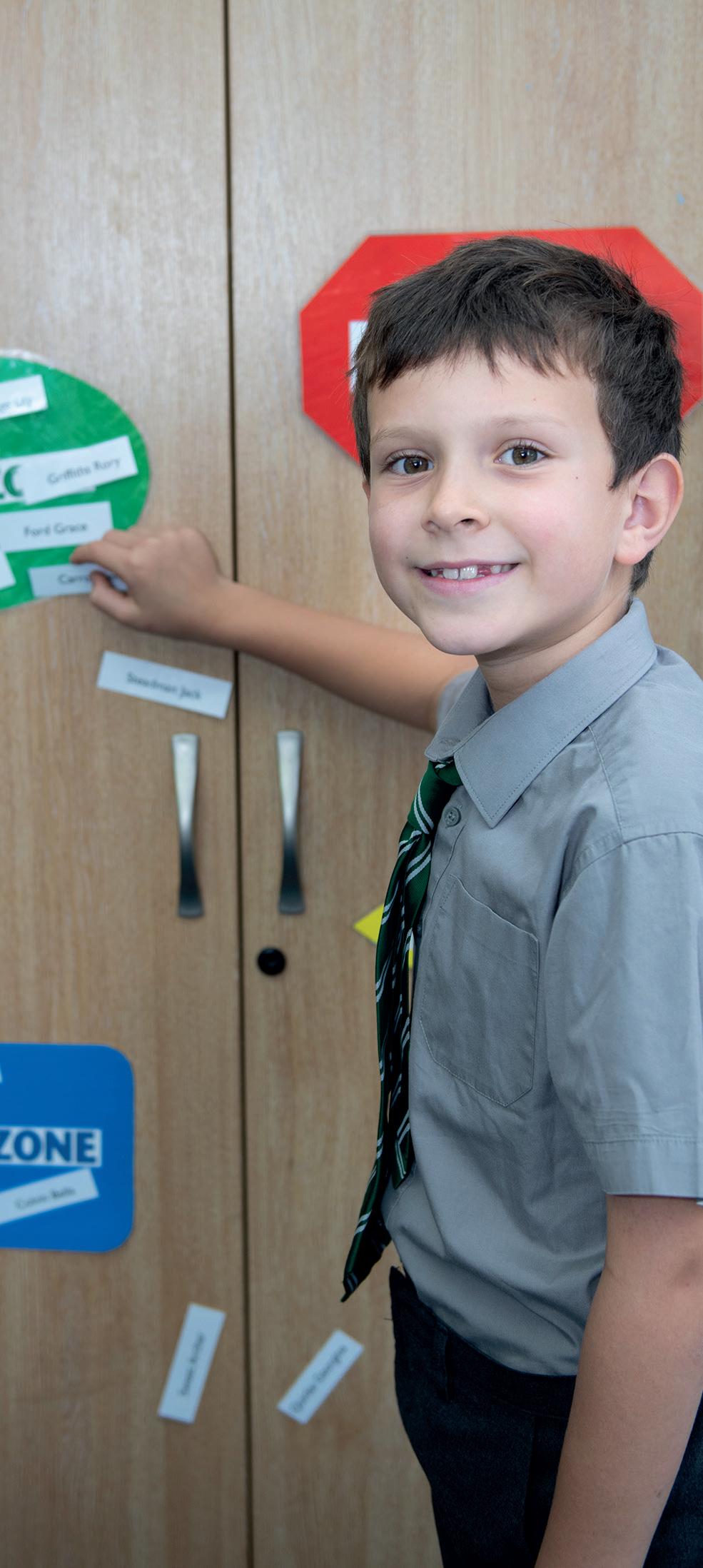
“We all encounter trying circumstances that test our limits from time to time. If we are able to recognise when we are becoming less regulated, we are able to do something about it to manage our feelings and get ourselves to a healthy place. This is the goal of the Zones of Regulation”
Leah Kuypers, Creator of the Zones
of Regulation
“Pupils demonstrate tremendous maturity when discussing how they can regulate their own behaviours.”
ISI Inspection Report 2023
RELATIONSHIPS
FORM TEACHERS
Relationships are the reason we recruit teachers with natural warmth, nurture, a sense of fun and a genuine love of children; lesson plans can be taught, the right heart can’t. All of our form teachers forge genuine and caring relationships, so the children feel happy, safe and willing to make mistakes – key ingredients for learning.
BUBBLES
Sometimes children might feel they need a little bit of extra support and they say the most precious gift you can give a child is time. That’s why we give each child a ‘bubble’ with their name on it, which they can quietly place on a teacher’s desk or chair when they want to talk to them privately. Leaving a ‘bubble’ on a teacher’s desk signifies, “I’d like some time”. And the teacher always prioritises that request. No matter what.
“The boys have continued to do well at school, deepen friendships and grow in all aspects in a way that delights us. It is always reassuring that they are nurtured in school as at home and that they feel truly loved and respected by their teachers and friends. This culture is embedded at Chinthurst and we are so pleased to be a part of it as a family unit.”
Year 5 Parent
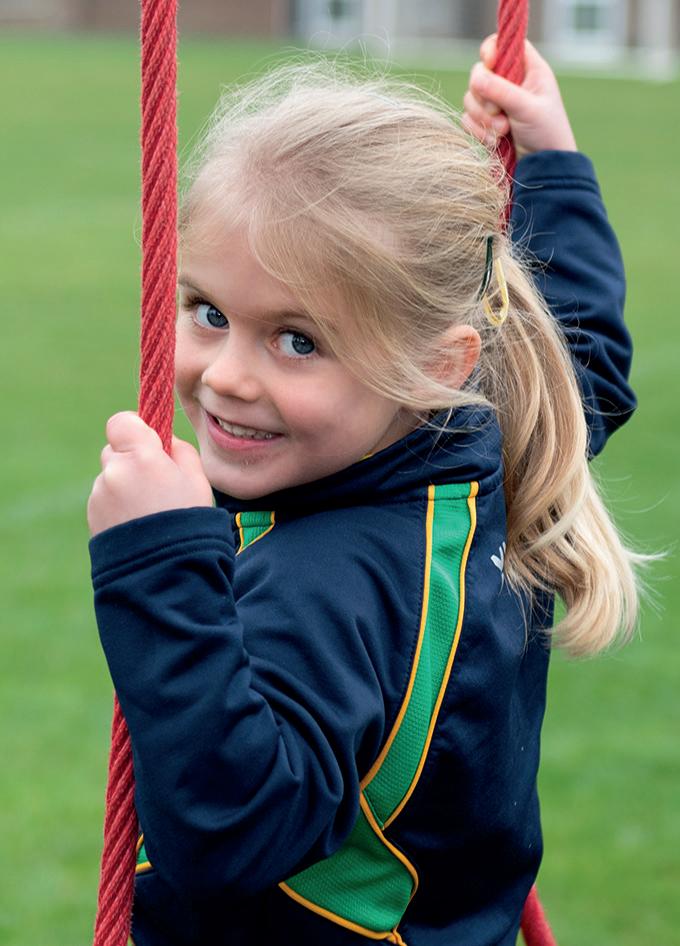
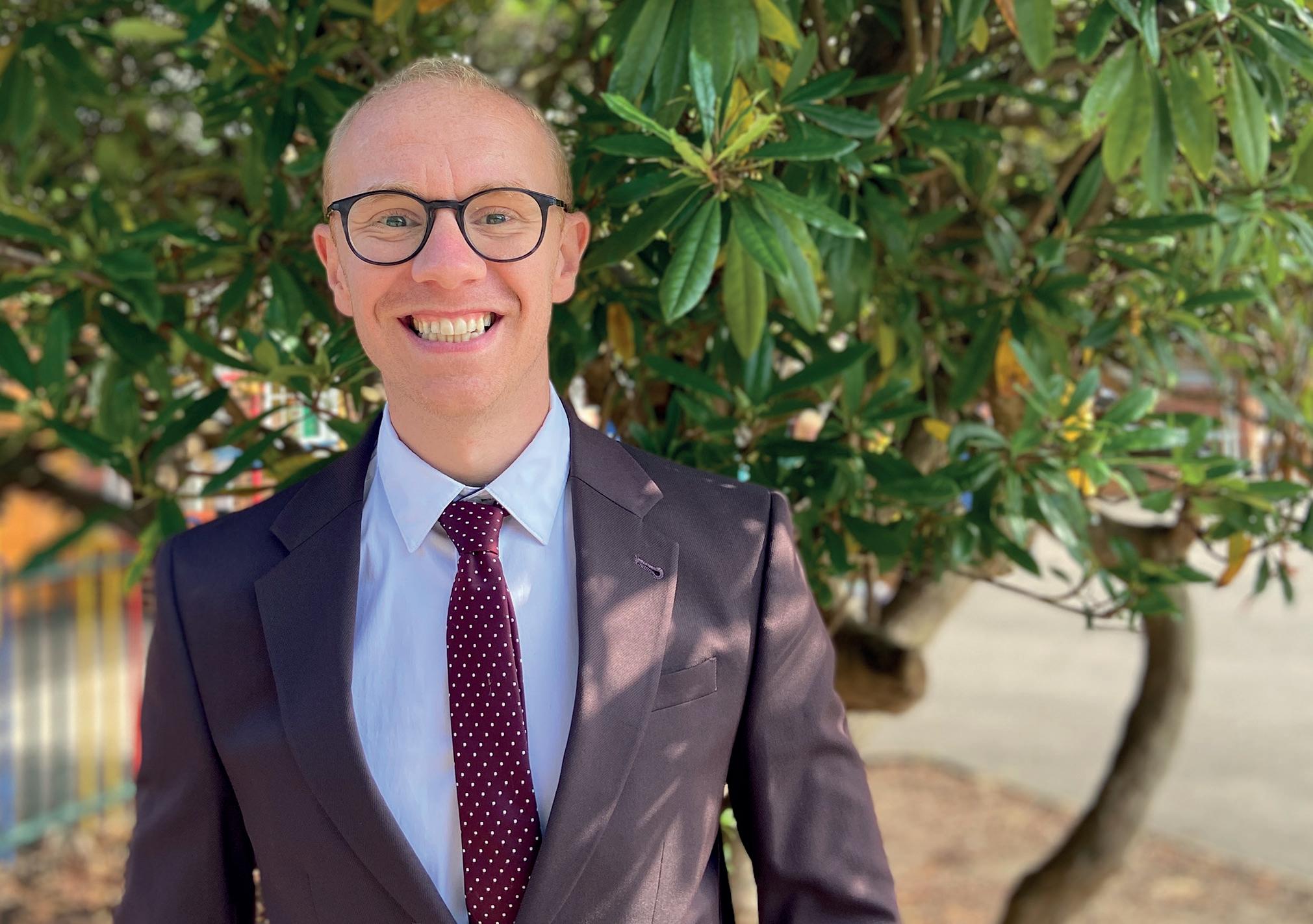
“Wellbeing
is the cornerstone of a successful and fulfilling education. We build meaningful relationships with our children, so that they have the confidence to stretch themselves and the resilience to try new things, safe in the knowledge that they are loved and valued.”
Mr Shaun Hornsby, Head of Pastoral Care
HEAD OF PASTORAL CARE
Our Head of Pastoral Care, Mr Hornsby, oversees the emotional wellbeing of the children and provides extra help and guidance should the children need it. His aim is to ensure that our children arrive at school each morning, brimming with excitement and ready to engage in their learning.
SCHOOL COUNSELLOR
We know that one of the most important aspects of wellbeing is having the opportunity to talk through concerns. Our dedicated school counsellor is available for children who have more complex issues requiring specialist support.
ELSA SUPPORT
Our school offers ELSA (Emotional Literacy Support Assistant) sessions – both one-to-one and in small groups – to help children understand and manage their feelings, build friendships and develop confidence. This support strengthens emotional wellbeing and helps pupils to thrive socially and academically.
MINDFULNESS
THE MINDFUL MINUTE
To ensure our children develop healthy mind habits for life, we have a daily Mindful Minute. Mindfulness is a useful tool for decreasing anxiety and promoting happiness, and children are uniquely suited to benefit from it. It promotes skills that are controlled in the prefrontal cortex – an area of the brain where connections are created at their fastest rate during childhood. Research shows that practising mindfulness can enhance focus in the classroom, reduce attention problems, improve social skills and enhance behaviour regulation.
For our children, the Mindful Minute takes place after lunch and is an excellent way to settle into afternoon lessons or sport. There is a different activity each day, and the activities range from simple breathing exercises to focusing on all five senses. During some sessions, the children quietly think about something they can be grateful for. They write it down on a piece of paper and put it in a ‘Mindfulness Jar’. Later, if they are feeling stressed or anxious, they can use the thoughts in the jar to calm themselves down.
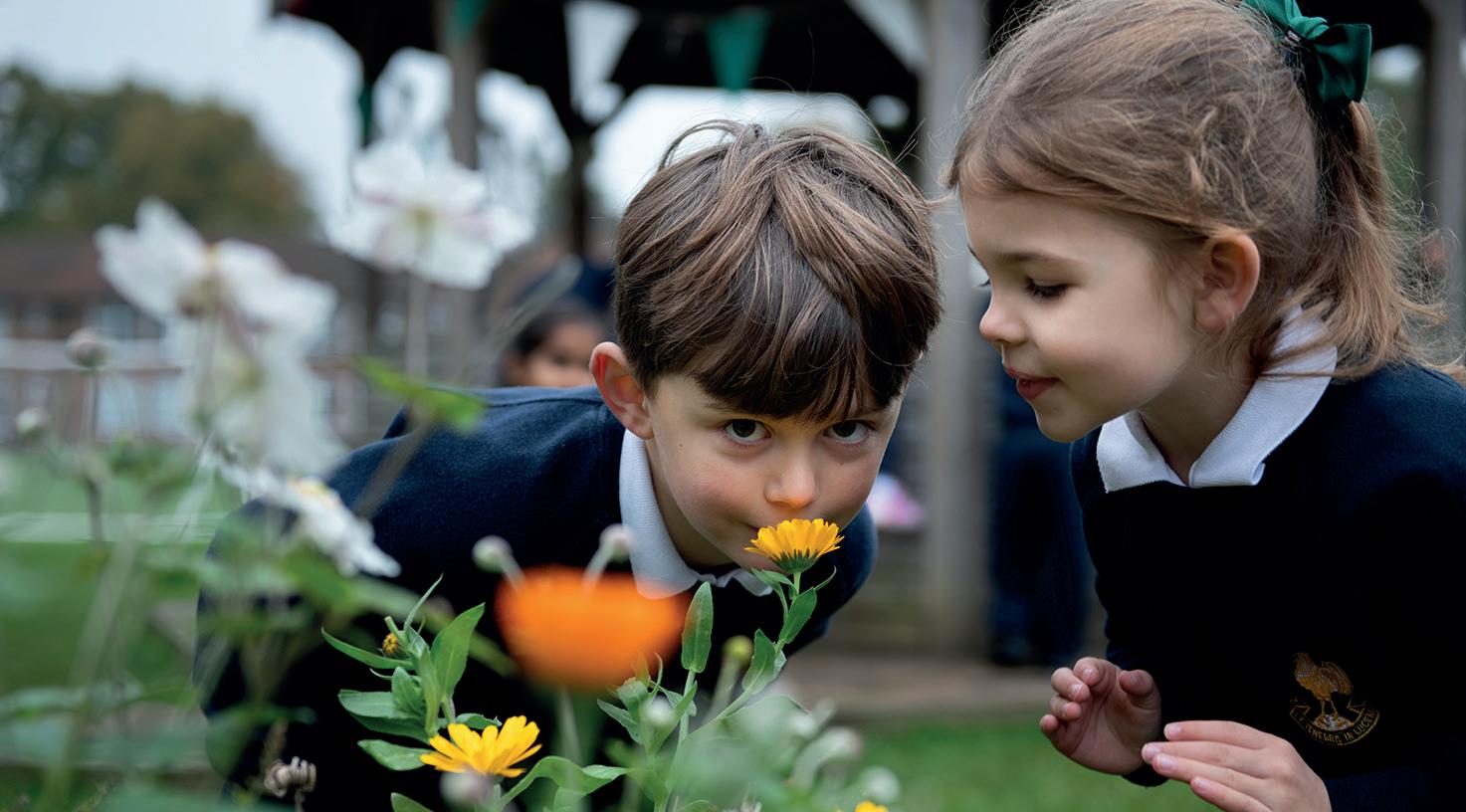
“Pupils are confident that the school supports and encourages them to succeed in all they attempt and, as a result, they respond to challenges with enthusiasm, courage and confidence.”
ISI Inspection Report 2023
“It has been astounding to watch our child grow in confidence and kindness.”
Year 2 Parent
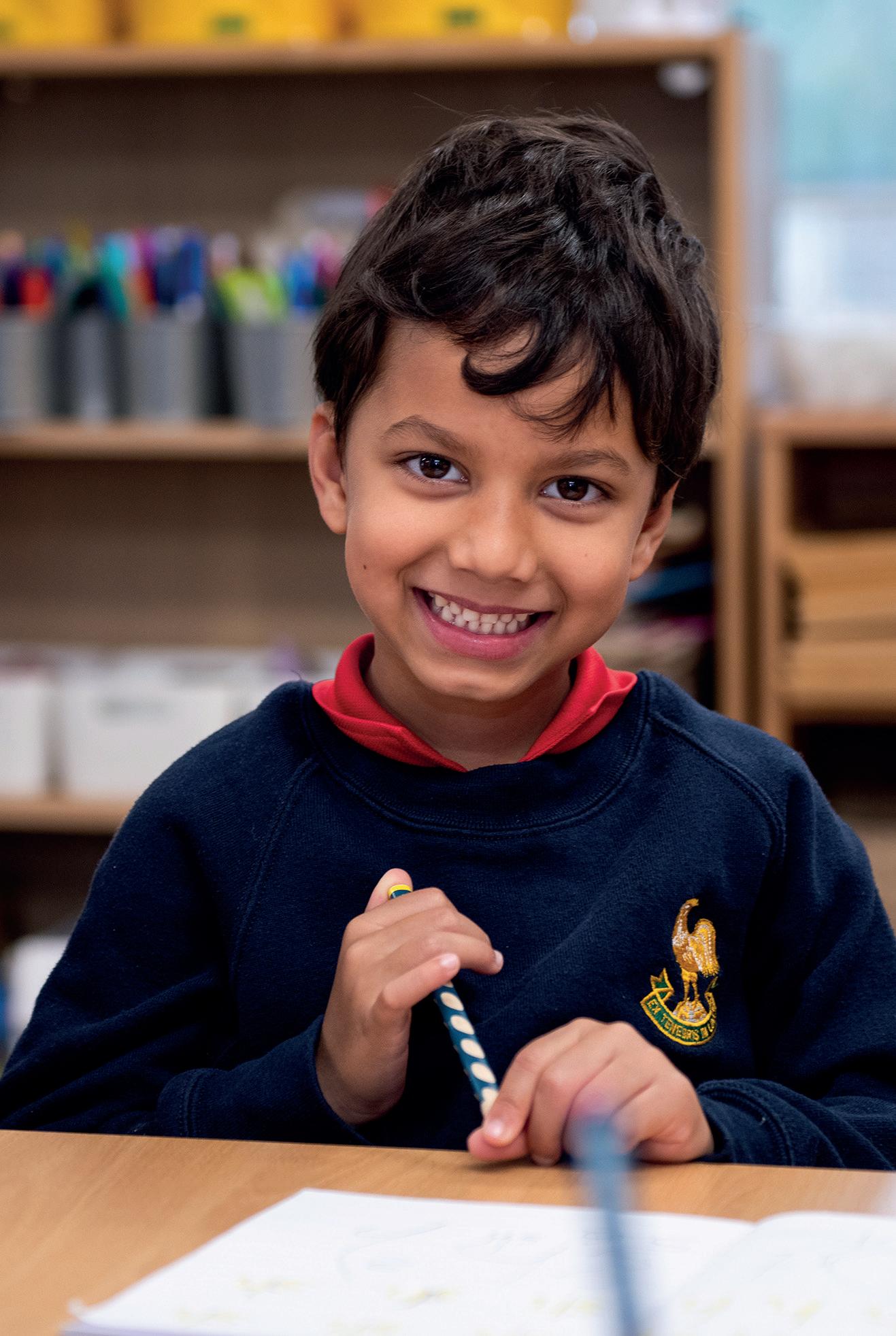
“A big thank you to the whole team for the nurturing, caring and academically engaging environment that you’ve created at Chinthurst.”
Year 6 Parent
“Ask any member of staff about how we make decisions and you’ll hear, ‘what’s best for the child’s safety, wellbeing and education’. It isn’t always the most convenient route, but if that’s what they need, that’s what we do.”
Miss Cathy Trundle, Headteacher
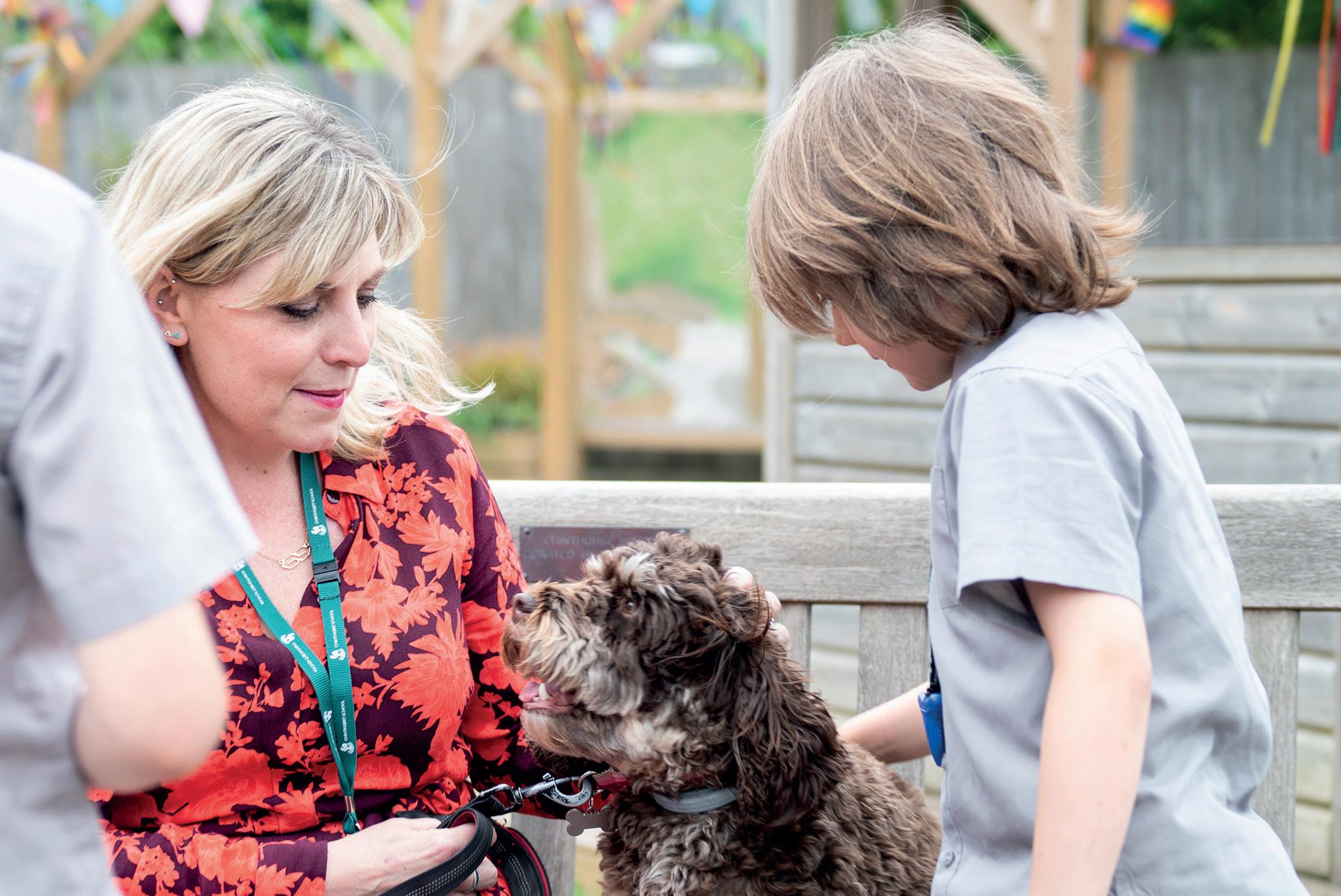
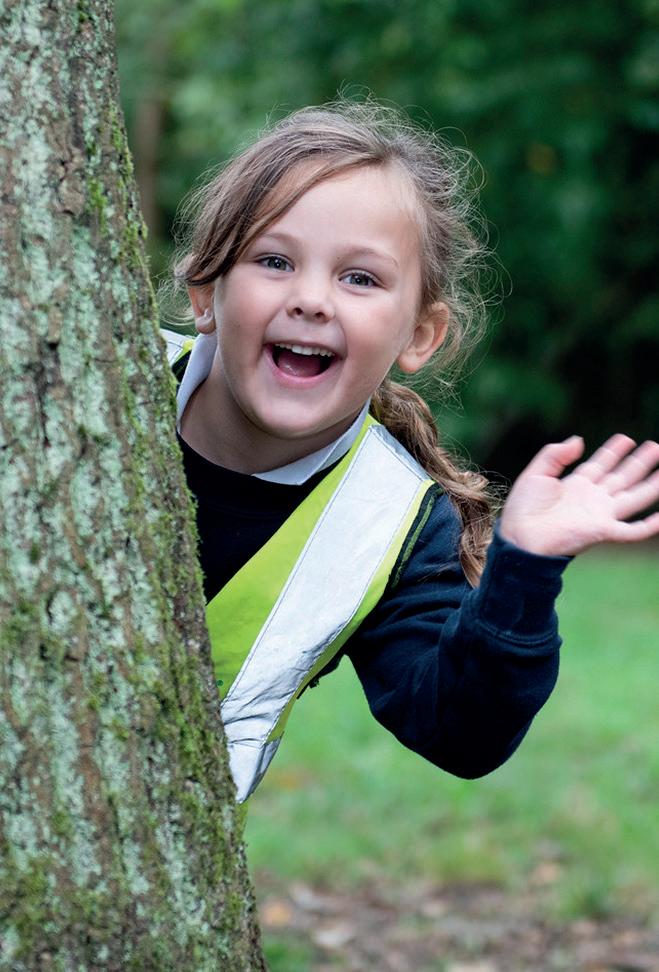
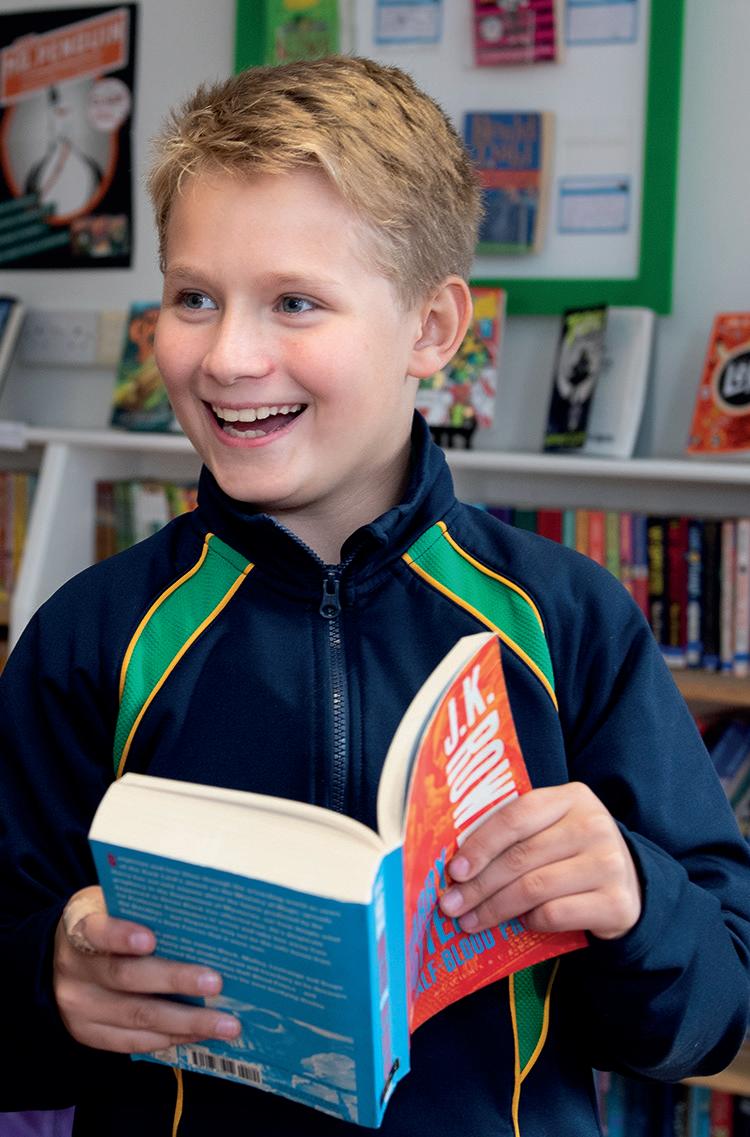
WELLBEING
THE WELLBEING ROOM
Our new forest-themed Wellbeing Room provides a safe space for our children to go to if they need a moment away from the crowd. It is designed to have a warm and cosy feel to it and to help our children feel calm and secure.
OUR WELLBEING CURRICULUM
At Chinthurst, our PSHEE curriculum supports children’s personal development through three key themes: Health and Wellbeing, Relationships, and Living in the Wider World. Lessons are age-appropriate and include engaging activities such as circle time, class discussions, and reflective “Big Questions” to encourage thoughtful exploration of topics such as safety, teamwork, diversity, and digital wellbeing. We also reinforce emotional regulation through a dedicated Zones of Regulation refresh session each term.
OUR WELLBEING DOG
Chinthurst has its very own wellbeing dog, Scout, who comes to school every day with Miss Trundle. Scout provides a calming presence for children who need a little bit of space and time and is always very kind and gentle. She is brilliant at listening to reading too!
WELLBEING MORNINGS
During form time, we hold weekly wellbeing activities to help the children regulate their emotions or to prompt discussion of any issues they have. Every classroom has a wellbeing box, thoughtfully created by our School Council members, who also organise annual wellbeing mornings for the whole school, offering a range of meaningful activities that promote positive mental health.
“We tend to forget that happiness doesn’t come as a result of getting something we don’t have, but rather of recognising and appreciating what we do have.”
Frederick Keonig
KINDNESS
Being kind to others boosts happiness and, at Chinthurst, our children are taught the value of kindness and how to care for each other through our PSHEE curriculum. Our half-termly values are based on the importance of helping others and provide a focus for assemblies and class discussions. Our children are involved in community outreach projects throughout the school year, and we are continuing to develop this important area. House meetings often focus on charity work and the importance of raising money for good causes. The children are involved in selecting individual charities and enjoy learning about how they can make a difference.
PUPIL VOICE
Communicating with peers and staff is a vital part of a child’s development and naturally contributes to their day-to-day happiness. At Chinthurst, we listen! Our children’s opinions are valued, particularly in relation to their school experience. The School Council is a formal way for our children to feed back their opinions, via a class representative during regular meetings. All points raised during School Council sessions are taken seriously and action is taken to implement suggestions and take on board feedback where possible. Our children know that they can regularly talk to us informally too.
PEER MEDIATORS & MENTORS
All of Year 5 are trained to be Peer Mediators in the autumn term. Peer Mediators work to diffuse low-level arguments and disputes between children in the Upper School during play times. Using skills acquired during their mediation training, the Peer Mediator’s role is to promote the importance of communication in reconciliation during mediations. Year 6 children are trained to be Peer Mentors. This increases their emotional resilience, selfleadership and mentoring abilities and empowers them to help and support fellow pupils.
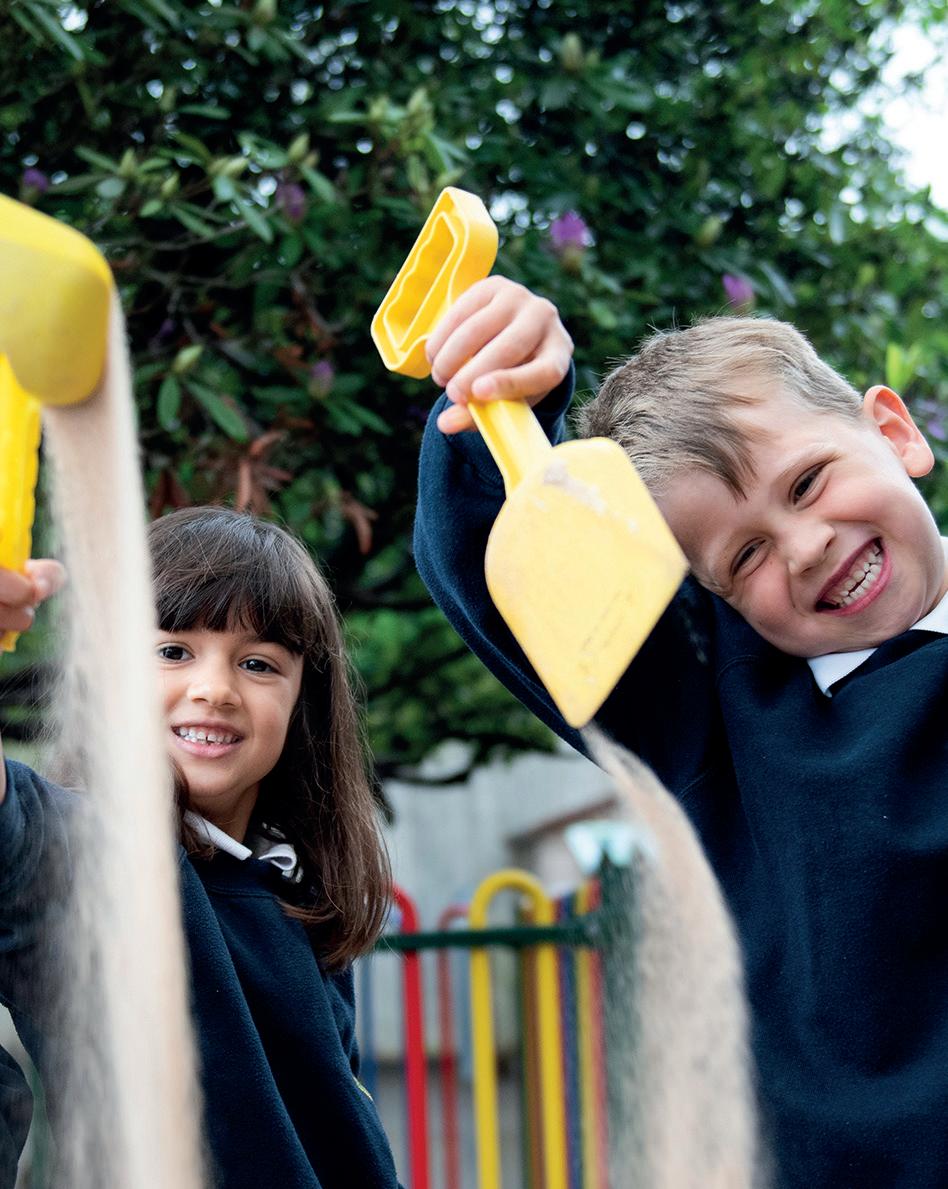
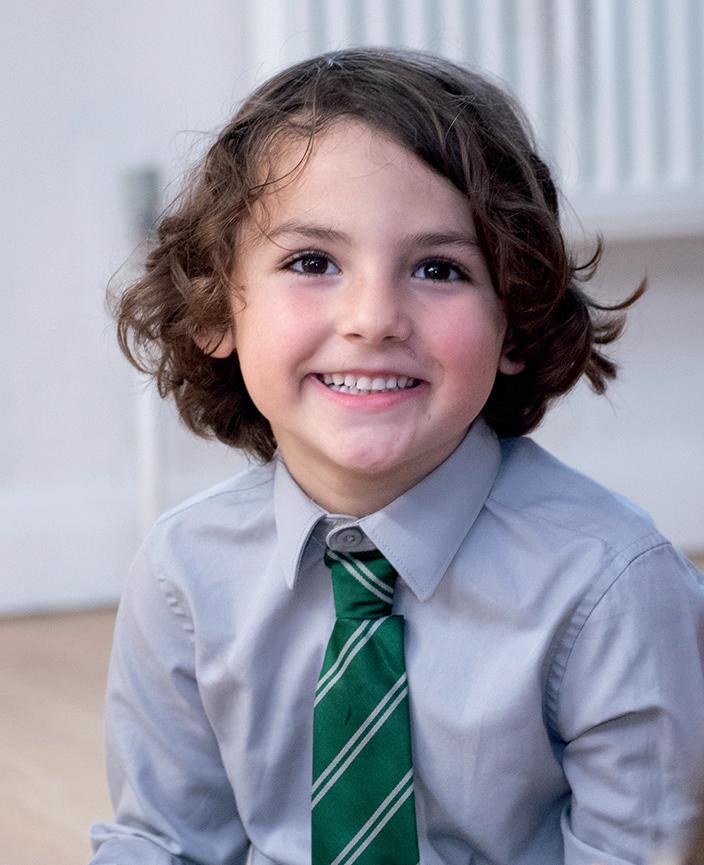
“In a world where you can be anything, be kind.”
Jennifer Dukes Lee
PAWESOME AWARDS
Our Pawesome Awards celebrate pupils who embody the Chinthurst spirit – from kindness and politeness to resilience, courage and commitment. Each month, winners join Miss Trundle for milkshakes or hot chocolates and biscuits, enjoying the pride and confidence that comes from being recognised. This sense of being seen and valued is central to their wellbeing – and time with our wellbeing dog, Scout, makes the occasion even more special!
ECO COMMITTEE
As part of our commitment to sustainability, children are encouraged to join our Eco Committee, working closely with our Eco Lead in regular meetings. Here, children have a real voice in shaping ideas that drive Chinthurst’s eco-initiatives. Acting as class Eco Monitors, they take on a variety of projects – from saving energy and reducing waste to planting trees – becoming proud Green Ambassadors for our school.
HEALTHY BALANCE
OUTDOOR LEARNING
There is considerable evidence suggesting that time spent outdoors, in nature, increases life expectancy, improves wellbeing, reduces symptoms of depression and increases a child’s ability to function in school. That’s why we take every opportunity to use the power of being outside to enhance the children’s learning. A maths lesson can be brought to life by finding patterns and shapes in nature around the school grounds, or a science lesson might include looking for signs of spring. Children naturally embrace learning outside and we know that interacting with nature helps to reduce stress and boost their creativity and problemsolving skills.
One recent American study showed that pupils taking part in an outdoor-based education programme reported increased levels of motivation and overall happiness. We are continuing to look at ways to further embed outdoor learning into our curriculum.
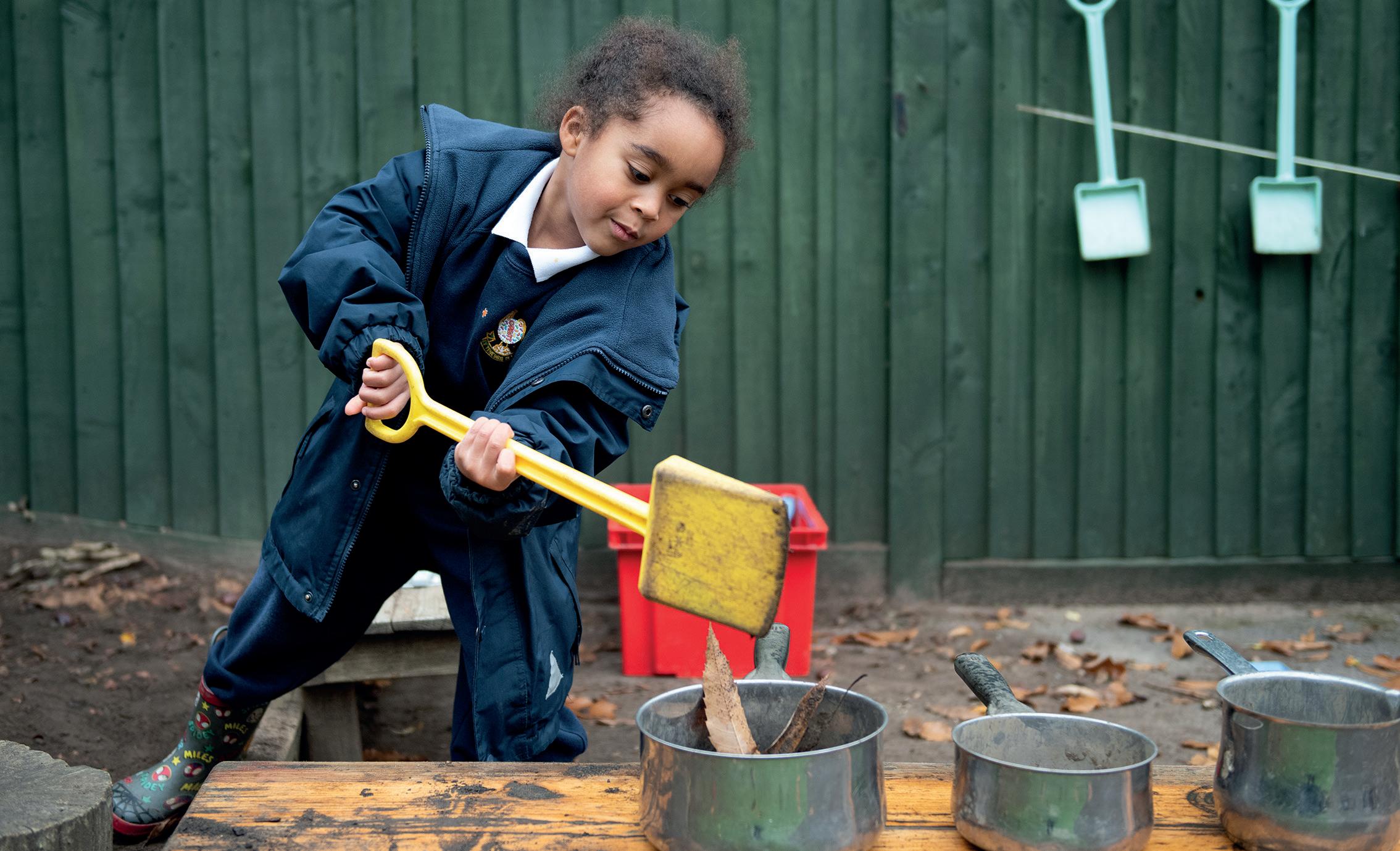
“Pupils demonstrate excellent levels of extra-curricular achievement, expanding their interests beyond the classroom through a range of activities.”
ISI Inspection Report 2023
EXTRACURRICULAR PROGRAMME
One of the secrets of wellbeing is to balance academic work with a range of other interests. We encourage our children to get involved in our extensive extracurricular programme so that they can develop interests outside of the classroom. It also gives them the opportunity to build relationships with their peers in other fun ways whilst attending one of our clubs, from ballet and cooking to Lego and mindfulness.
HEALTHY EATING
Having a healthy diet is an important part of children’s physical wellbeing and they learn all about this within the science curriculum. This is supplemented by visits from nutrition specialists. Our catering company also runs regular healthy-eating sessions with the children to teach them how and why to make healthy food choices.
WHAT CAN PARENTS DO?
Parental support is absolutely vital to children’s success and wellbeing at school. Unrealistic expectations are harmful and have a negative impact on a child’s confidence. However, low expectations can be just as damaging as having expectations that are too high, so some aspirations are healthy and one-to-one time at home can really boost confidence and achievement. It is important to remember that children need time to be children too and relaxation, play and fun are an important part of preparing them for a happy adulthood.
“As soon as we walked through the gates on our first tour, we saw the happiness, confidence and curiosity of the children and we knew it was the right choice for us.”
Reception Parent
“By far the most important predictor of adult life-satisfaction is emotional health, both in childhood and subsequently.”
LSE Wellbeing Research
Chinthurst School, Tadworth Street, Tadworth, Surrey KT20 5QZ 01737 812 011 | admissions@chinthurstschool.co.uk www.chinthurstschool.co.uk


ChinthurstSchool chinthurst.school
